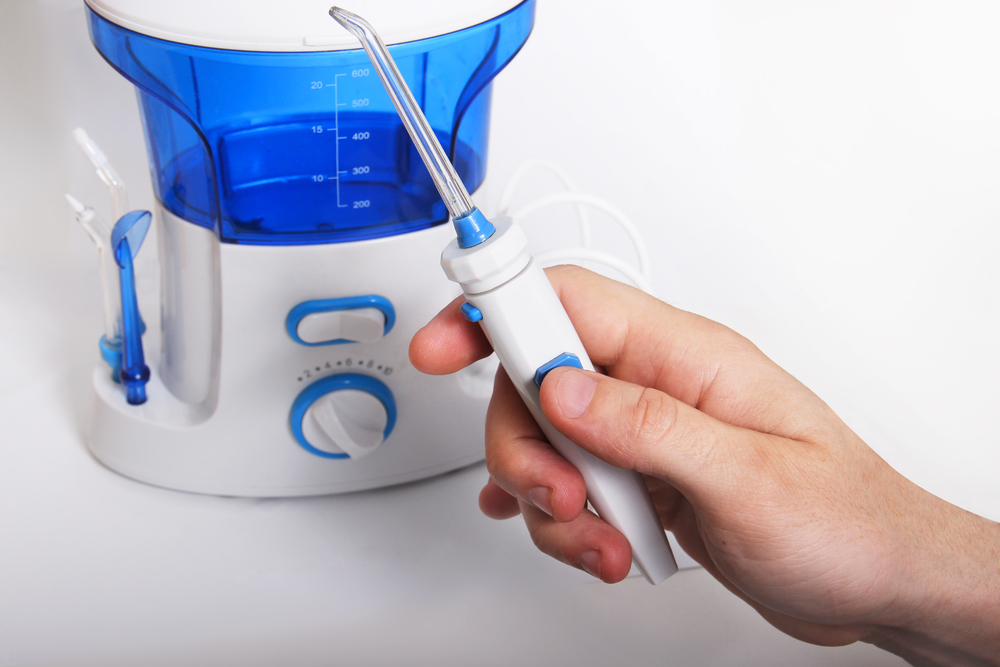
We’ve been hearing for years that water flossers benefit the teeth and gums, but until recently we’ve not really known how beneficial these devices are for our oral health. Water flossers, sometimes known by the brand name Water Pik, are devices that clean away plaque and debris with a concentrated stream of water that works to essentially floss the teeth without the need for string dental floss.
Now, a new study has revealed just how effective water flossers are at clearing away plaque and keeping the teeth and gums healthy. The study was published on the website Dentistry IQ and was conducted by Water Pik.
In the study, 70 patients were monitored over a four-week period. Some patients were given an electric, oscillating toothbrush, while others were given the same oscillating toothbrush as well as a Water Pik water flosser. The patients who were given both devices showed markedly improved oral health in that time. In fact, the combination of the toothbrush and water flosser was found to be 37 percent more effective in reducing bleeding gums, 36 percent more effective in reducing inflammation of the gums, and 33 percent more effective in reducing dental plaque in just a four-week window.
Dr. Kelley Mingus is a dentist from Bend, Oregon. He says patients looking to add a water flosser to their routine should do so only after understanding the results of the study.
“The study used both an electric, oscillating toothbrush and a water flosser, so in order to get similar results, you’re going to need both of these oral health tools,” he says.
Mingus says that while it’s clear that water flossers are effective at cleaning teeth and gums, they are not as good as the old standby: dental floss.
“Flossing with a water flosser is a great way to loosen and rinse away debris on the teeth and along the gum line, but using string floss is better,” he says. “If it’s a water flosser or nothing, your dentist would rather you use the water flosser, but ideally you would use both the water flosser and the traditional string floss as part of your total oral health care routine.”
According to Mingus, if you suffer from gingivitis or periodontal disease, you should speak to your dentist about starting a treatment plan. This plan may or may not include adding a water flosser to your routine, but you should always discuss adding an oral hygiene step with your dentist before beginning.

